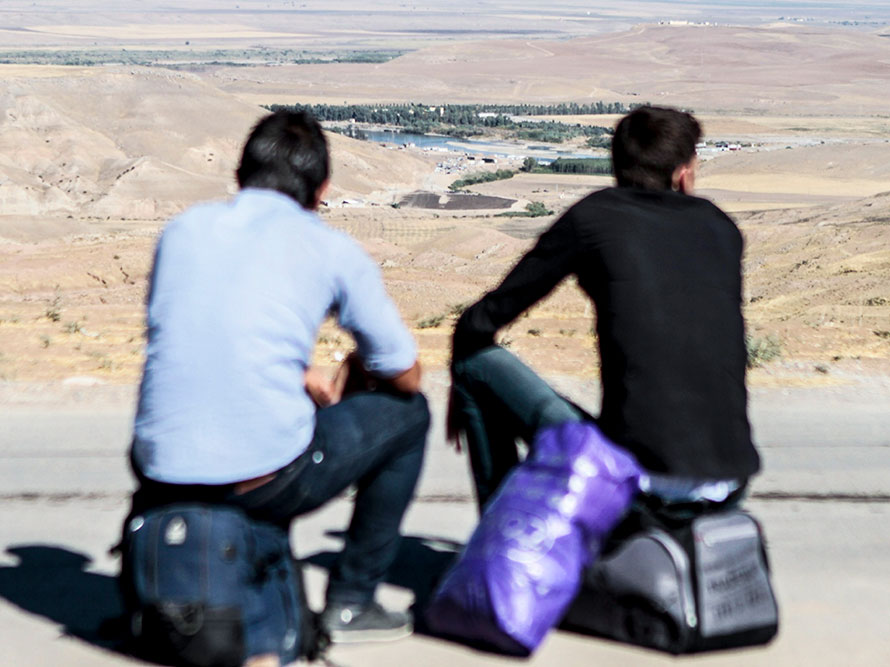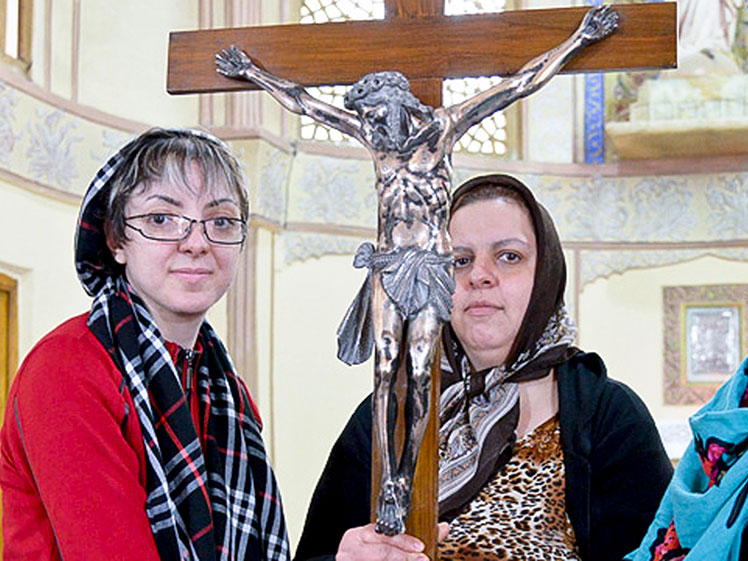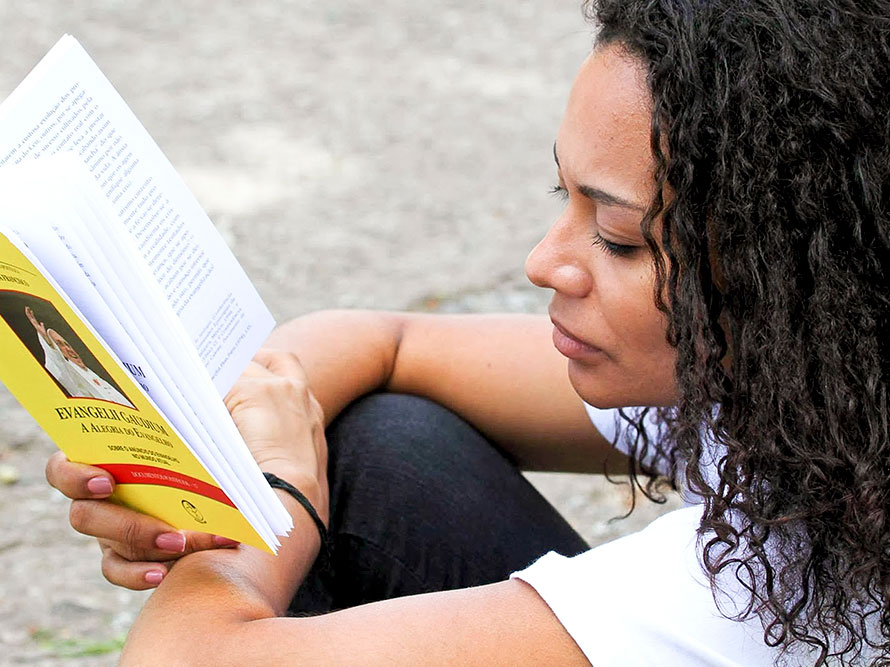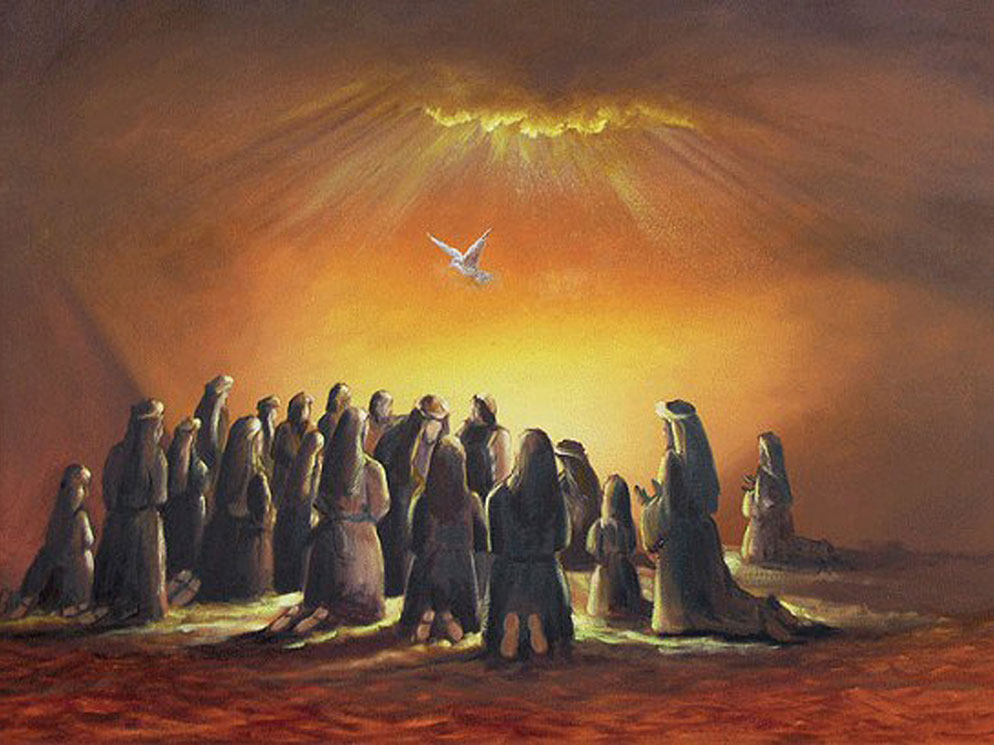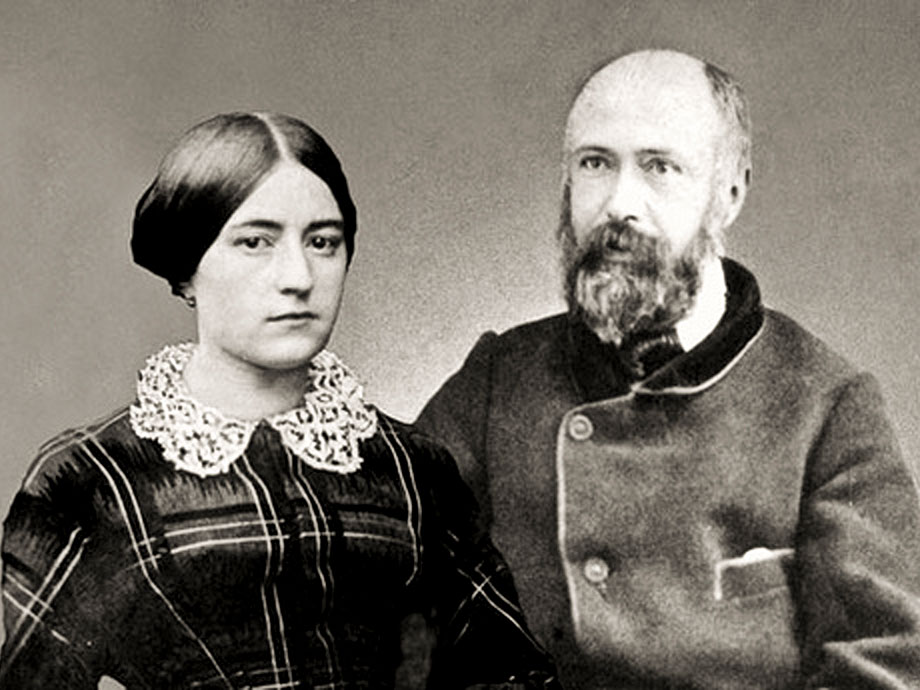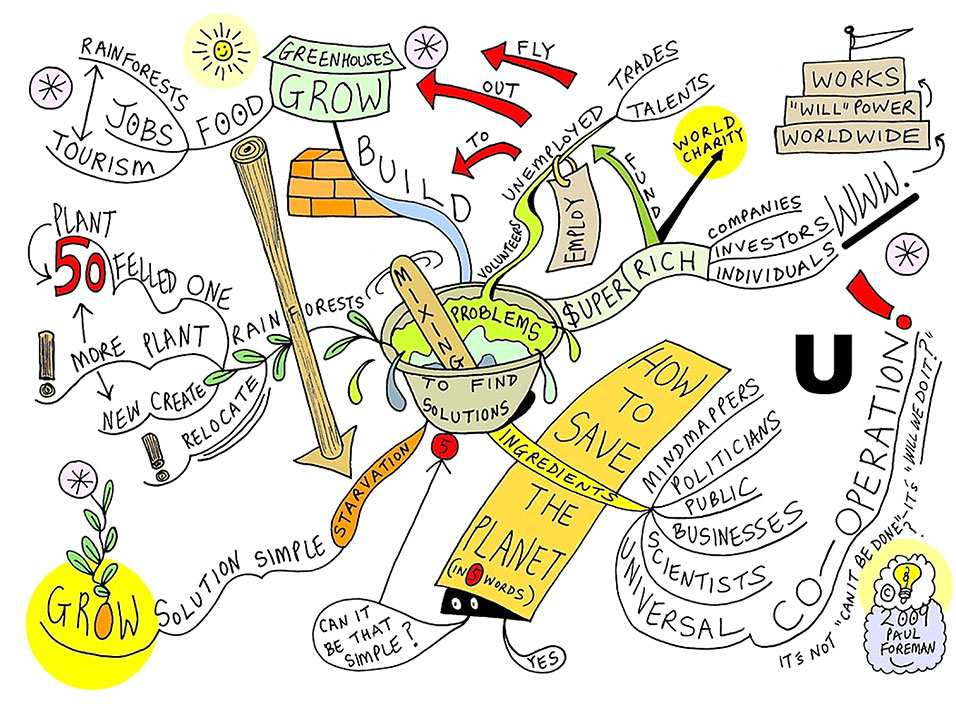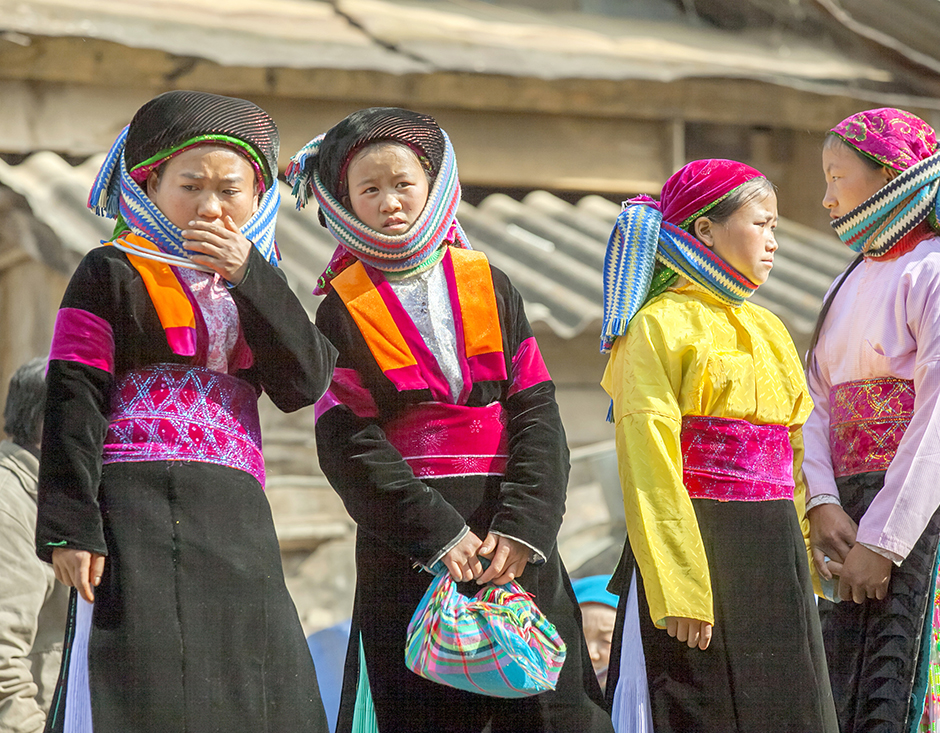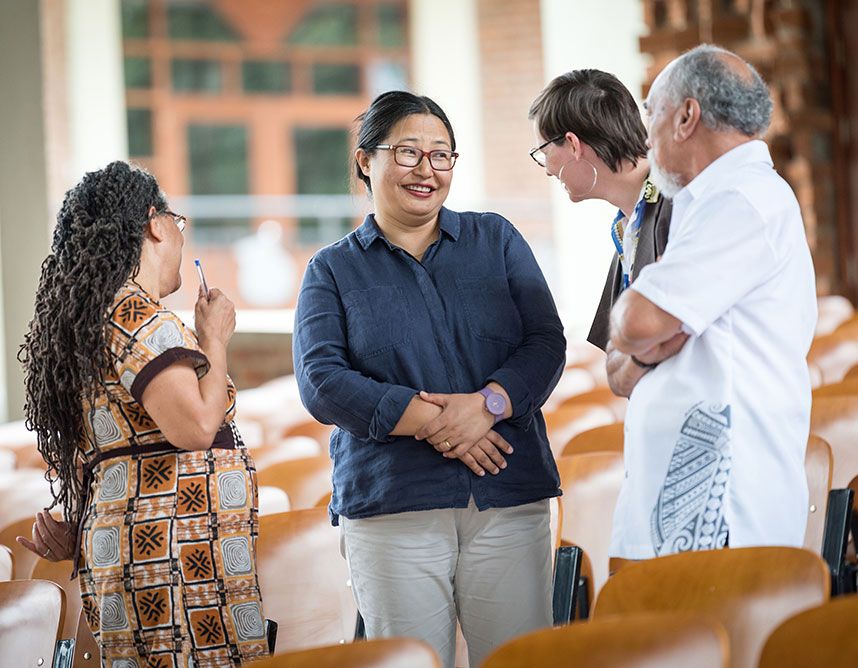What positive caring attitude and human value can all hostile and alienated groups aspire to or embrace to work towards cease-fires, peace talks, or bring change to hundreds of thousands? What can foster a greater respect for human life, the rights and dignity of people, and religious freedom and tolerance? What can foster peace and harmony in communities to help prevent more conflicts and create an atmosphere where strangers or enemies can sit and talk? To do this, we need to revive the ancient practice and virtue of hospitality.
Hospitality in western cultures is normally giving friendly parties and overnight accommodation to friends and family. But it ends there. The traditional meaning, held for thousands of years, is welcoming strangers and travelers in a hostile environment, giving them protection, food, and drink. Welcoming and accepting a stranger into one’s tent or house in the harsh existence of a desert climate, for example, was an act of mutual survival and respect for human life.
Failure to share one’s water and shade with parched and weary travelers was a death sentence for all in the ancient Middle East. Peaceful travelers, strangers, and outsiders would die of thirst and hunger without hospitality. Refusal was a great insult, a violation of the hospitality code and cultural practice that would have to be avenged. It would bring down the wrath of the traveler’s tribe on the non-welcoming oasis or town. So mutual sharing with strangers and outsiders of all religions and races was a practice and custom that assured mutual survival. It was a sacred custom not to be violated. It was a vehicle for reconciliation and fostering friendship in conflict-torn communities, too.
In history, hospitality was essential for the survival of all. It was a cultural practice with a code of conduct, rituals and obligations for all. It became the means to bring together parties and solve disputes, prevent bloodshed, and make peace. It was survival of the community.
That form of hospitality is still alive and working today. The recent cease-fire in Gaza between the Palestinians and the Israelis was brokered by the Egyptians who provided a safe location, an open door, security, accommodation, food, and trusted negotiators. That enabled talks to take place. The Egyptians created the opportunity for forging a cease-fire based on the traditional practice of hospitality. Many lives in Gaza were saved as a result.
CHRISTIAN HOSPITALITY
However, more than traditional hospitality, the world today needs hospitality towards rejected refugees and asylum seekers or victims of racial discrimination and human rights violations – people fleeing war, poverty, and persecution who are strangers in need of acceptance. Above all, they need Christian hospitality. Jesus has shown us the way in the Gospel. It is a practical yet spiritual experience for Christians to be truly hospitable.
When Jesus sent out His 70 disciples into the world to spread the Good News, hospitality was the occasion of evangelization and salvation (Lk 10:1-16). They were to depend on hospitality of others and give them a chance to do good. The disciples were instructed not to bring provisions and to simply rely on the hospitality given by the poor. The hospitality of the poor showed their importance in the Kingdom: “Blessed are the poor, theirs is the Kingdom,” Jesus said in the “Sermon on the Mount.” The disciples, too, were to use the hospitality to share the spiritual food of the Good News and bring blessings to all who showed hospitality. “Whoever listens to you listens to Me,” Jesus told them, “and whoever rejects you rejects Me, and whoever rejects Me rejects the One who sent Me” (Lk 10:16). It is a challenge to accept Jesus Himself and the Gospel. Christian hospitality brings with it great responsibility to the givers and the receivers.
Hospitality is a very challenging and important human and spiritual value. In the Gospel, there are striking examples of hospitality as the venue and occasion of personal transformation, revelation, enlightenment and conversion. The Christian belief in hospitality is much wider than hosting peace talks. It is a spiritual value of acceptance of the divine and all that makes us one in the family of God. That goes beyond mutual cooperation for mutual survival; it is an evangelical encounter with Jesus and His Father.
PEOPLE IN NEED OF WELCOME
In the world today, Christian hospitality is an openness to the needy, the stranger, the rejected, and the political refugee or economic migrant. They are people who are downtrodden and exploited and in great need of welcome, shelter and friendship. It must be freely given without seeking a reward or return. It is the act that takes risks for oneself and to the community. To greet unknown strangers of a different race, creed and culture and make them part of our family and community is an act of Christian love.
The Christian tradition of hospitality comes from the words and practice of Jesus and passed on to His followers with a life-giving power for both the giver and the receiver. It brings with it a unique, deep spiritual experience and meaning for all.
The Gospel story of the “Good Samaritan” shows this (Lk 10:29-37). As told by Jesus, it illustrates what it means to love God as His followers, a love that has to go beyond the traditional Jewish law to love God with our whole heart, mind, and soul. Through a loving act of profound hospitality by an outcast himself, the dying stranger by the roadside was given life. The victim was ignored and abandoned by the ruling elites and the clergy as they walked by. It was through the Samaritan, that the fullness of love was lived out. The Samaritan risked his own safety, having been in “bandit country” and helped the victim without regard of the latter’s religion, color and race. The Samaritan used his personal resources and provided hospitality for the victim’s long-term care and recovery.
In Badolato, Southern Italy, a town that was heading for extinction because of low birth rate and a migrating population of 7,000 going to the cities, the remaining 400 citizens welcomed the Kurdish asylum seekers that were rescued from a sinking boat and gave them shelter. The townspeople, who had resisted outsiders for 10,000 years, now accepted them with genuine hospitality and an invitation to stay. Many refugees have made a new life there or have moved on.
NO STRINGS ATTACHED
The conditionality of traditional hospitality is its weakness. In true Christian hospitality, there are no conditions attached. It is a virtue that puts aside traditional phobias, hostilities, prejudices, stigmas, fears and conditional acceptances of the outsider. In its true form, it accepts and welcomes strangers of all races, ethnic backgrounds and nationality or economic standards. Christian hospitality incorporates forgiveness, compassion, understanding and forbearance.
In New Mexico, Catholics and evangelical Christians have a wonderful risk-taking hospitality that gives shelter to exhausted travelers from the south. It is illegal in those parts of America to shelter illegal immigrants but the Sanctuary Movement practices this great virtue as Jesus taught us. “He who accepts those in My name accepts Me,” He frequently said. It is hospitality based on an act of belief in the goodness of people and looks on them as equal members of God’s family and the human race.
When hospitality is extended like this in the modern world, it fosters mutual cooperation, respect for refugees, asylum seekers, stateless and displaced persons. This is what the world needs: a deep spiritual transformation in developed countries to move from fear, rejection, and loathing of strangers to acceptance and equality as human persons with equal rights to live in peace.
HUMAN WEAKNESS AND RESISTANCE
Peter himself struggled with traditional prejudice of the Gentiles. Such prejudices are powerfully at work in modern society. In many developing countries, there is a bias towards considering white-skinned people more desirable, beautiful and superior. The dark-skinned aboriginals in the Philippines and Australia and elsewhere are considered, by many, to be of an inferior race and are discriminated against. In Asia and parts of Africa, the sales of skin bleach have reached astronomical heights.
Christian compassion, empathy and hospitality has never been more necessary than today. It is a truly tragic and horrific situation in the Middle East where thousands of non-combatants, mostly women and children have been bombed, burnt, mutilated, beheaded, raped and murdered. Many hundreds of girls and women have been kidnapped and sold as sex slaves by the ferocious merciless fighters of the terror group that calls itself Islamic State. They have massacred many members of the Kurdish population in Syria, Christians, Yazidis, and other ethnic groups also have suffered greatly. Over a million have fled to Turkey.
The extreme religious prejudices that some Islamic sects have against each other, like the Sunni and Shia Muslims, for example, have led to incredible atrocities over the years. The culture of survivalist hospitality has long broken down. There are no neutral safe zones. The worst is that of the so-called Islamic State. The IS considers the Yazidis heretics and only worthy of mutilation and extermination.
There can be no place for racial discrimination among Christians or any civilized people. IS is the example of what it leads to. It was through the sharing of hospitality that Peter was able to overcome his racial prejudice and his classification of people into “clean and unclean.” At first, that prevented him from accepting the hospitality of the Roman soldier Cornelius who invited him into his house (Acts 10: 28-11;12). Not only were Roman soldiers considered oppressors of the Jewish people but a Jew would be “contaminated” by being with such a Gentile and by entering his house.
Jesus had no such reservations. All people of all races and cultures were to be welcomed into the hospitality of the Kingdom. It took a vision, divine intervention perhaps, for Peter to overcome his reluctance to enter the house of a Gentile. But when he did, they welcomed him openly. Cornelius and all households and friends were filled with the Holy Spirit, believed in Jesus, and were baptized. Hospitality was the channel of overcoming such cultural and racial divides in the Early Church. Christianity spread through the Roman world. For all of us, hospitality is the way to bring together the abandoned, the lost, the lonely, and the oppressed into the Kingdom and into our communities, homes and lives.
HOSPITALITY IN ACTION
As a young boy in my home in South Dublin, I was greatly impressed by the hospitality that my parents gave to the “travelers” – the poorest of the poor in the 1950s in Ireland who were looked down upon as inferior.
Although not very well-off, my parents, John and Mary, regularly welcomed the poor in our front garden. They were a large family of a dozen children, too many to fit in our small front room. They made themselves comfortable on picnic blankets under the trees in the front garden and were fed with a big meal which I was assigned to serve them. My mother gave the children clothes and a parting gift of five shillings to the family. That was the weekly act of hospitality we had for years.
Perhaps that hospitality inspired me to become a missionary and, until today, I extend hospitality to the victims of rape and abuse and human trafficking. There are almost a hundred abandoned and abused children in the Preda Foundation Homes. Hospitality is the hand of God working through us, welcoming the strangers and the needy.

